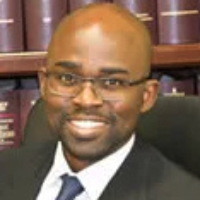Knoxville Felony Lawyer, Maryland
Sponsored Law Firm
-
 x
x

Click For More Info:
-
Law Offices of Charles L. Waechter
1435 Sulphur Spring Road 1st Floor Baltimore, MD 21227 » view mapMaryland Criminal Law The Premiere Criminal Defense Firm
Child Pornography and Criminal Attorney Serving Clients throughout Maryland. Contact today for swift and professional council, your future is on the line.
800-654-7381  Charles Waechter Baltimore, MD
Charles Waechter Baltimore, MDAttorney At Law - MD, 1985
University of Baltimore SOL, J.D. - 1985
 Video Center
Video CenterClick here for our firms introductory video and video center.
 Contact UsEmail or Call 24/7
Contact UsEmail or Call 24/7Call today for your initial evaluation
Not enough matches for Knoxville Felony lawyer.
Below are all Knoxville Criminal lawyers.
Ayodeji Oyekunle Badaki
✓ VERIFIEDAyodeji Badaki holds a J.D. from the University of Baltimore School of Law as well as an LL.M. from the Georgetown University Law Center where he was ... (more)


 Charles Waechter Baltimore, MD
Charles Waechter Baltimore, MD Video Center
Video Center Contact UsEmail or Call 24/7
Contact UsEmail or Call 24/7

